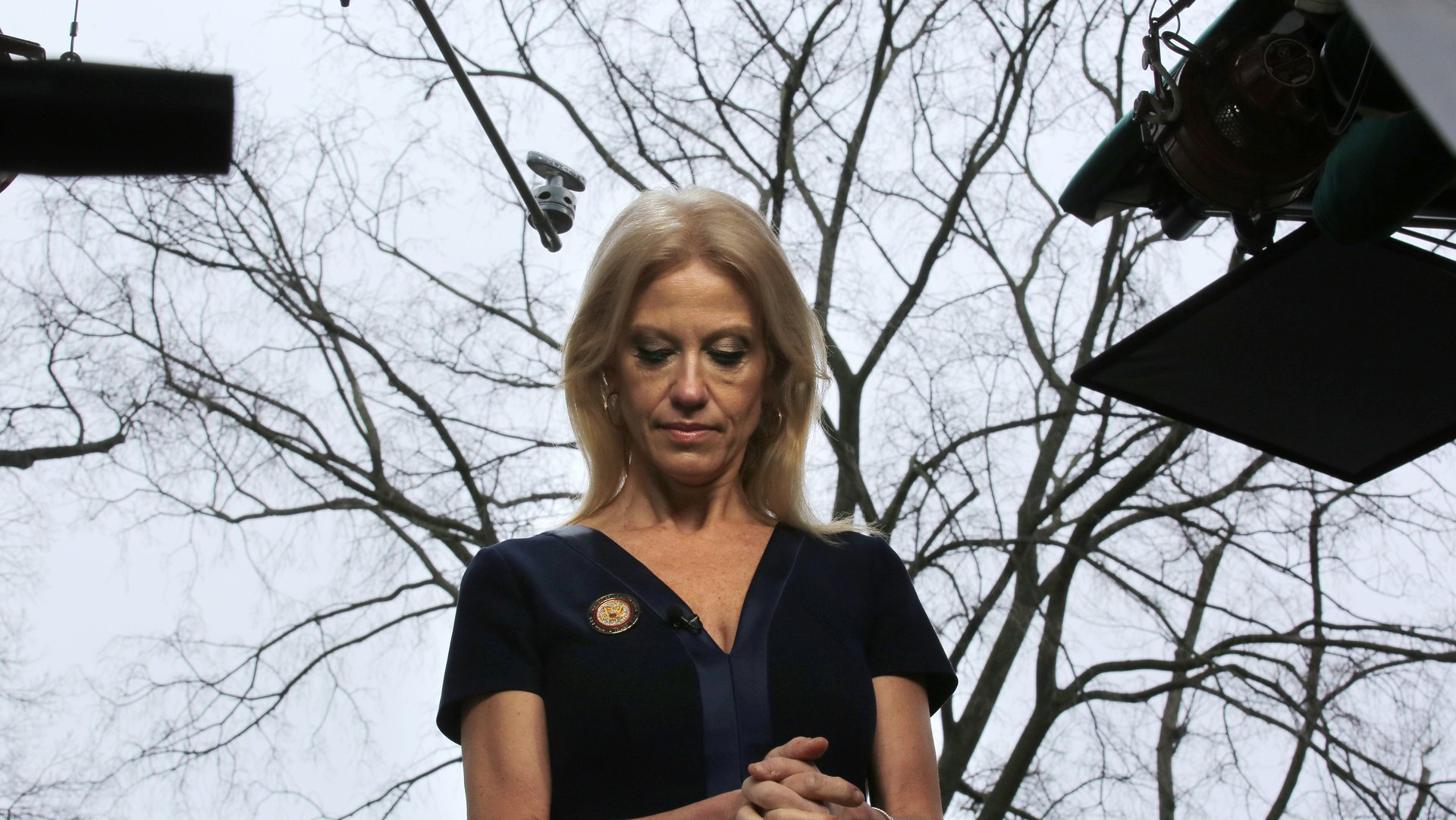Hannah Arendt’s WWII philosophical study of totalitarianism shows “alternative facts” are nothing to laugh about
Sometimes, when faced with political operatives using terms like ”alternative facts” or invoking a nonexistent “Bowling Green massacre,” it feels easier (and emotionally healthier) to laugh than to cry.


Sometimes, when faced with political operatives using terms like ”alternative facts” or invoking a nonexistent “Bowling Green massacre,” it feels easier (and emotionally healthier) to laugh than to cry.
Humor can provide relief and some see it as a political weapon. But US president Donald Trump’s new administration seems impervious to parody, and shows no signs of changing tactics. And, as Hannah Arendt, a philosopher who dissected the rise of totalitarianism during the Second World War, showed in 1951, political lies aren’t funny at all.
Indeed, history serves as a troubling guide to what happens when political leaders are detached from the truth. Consistently denying the truth ultimately wears it out, and facts lose their value when they’re undermined by the government, Arendt wrote. Her key work, The Origins of Totalitarianism, recently sold out on Amazon and is an unnerving warning for politics today.
A few passages from Arendt’s work, highlighted by Open Culture, show her analysis of the dangers of blatant political lying: “The result of a consistent and total substitution of lies for factual truth is not that the lie will now be accepted as truth and truth be defamed as a lie, but that the sense by which we take our bearings in the real world—and the category of truth versus falsehood is among the mental means to this end—is being destroyed,” wrote Arendt.
In recent weeks, Trump’s press secretary, Sean Spicer, and his counselor Kellyanne Conway have become laughing stocks for their obvious diversions from reality. An SNL parody of Spicer has been watched more than 15 million times, and Conway’s characterization of lies as “alternative facts,” has now entered the public lexicon. Her comments on a “Bowling Green massacre” that never happened have been similarly mocked.
On Monday, Trump falsely said that the media was failing to report on terrorist attacks. “It’s gotten to a point where it’s not even being reported. In many cases, the very, very dishonest press doesn’t want to report it. They have their reasons and you understand that,” he said, providing no evidence.
The White House later released a list of “under-reported” terrorist incidents that included the Orlando nightclub shooting, Paris Bataclan attacks, and the Nice terrorist attack—all of which were extensively reported upon by journalists.
Meanwhile, Trump continued to insist that his own perspective was more valid than independent polls.
As Arendt showed, it doesn’t matter that we can disprove Trump’s statements. By sowing seeds of doubt and dismissing the truth, the administration can effectively distort reality. Arendt wrote:
In an ever-changing, incomprehensible world the masses had reached the point where they would, at the same time, believe everything and nothing, think that everything was possible and nothing was true… The totalitarian mass leaders based their propaganda on the correct psychological assumption that, under such conditions, one could make people believe the most fantastic statements one day, and trust that if the next day they were given irrefutable proof of their falsehood, they would take refuge in cynicism; instead of deserting the leaders who had lied to them, they would protest that they had known all along that the statement was a lie and would admire the leaders for their superior tactical cleverness.
Ultimately, humans are fallible judges of the truth. Scientific studies have shown that determining a statement is false takes more mental energy than simply accepting it as true. It would be exhausting to go through life questioning everything around us, and so humans are naturally inclined to judge what we see and hear as truth. Frequently repeating a lie further creates “the illusion of truth.” Simply put: The more often we hear a statement, the more likely we are to judge it as true.
So while the Trump team’s lies might seem so egregious that they’re funny, they can still have a sinister and powerful effect.